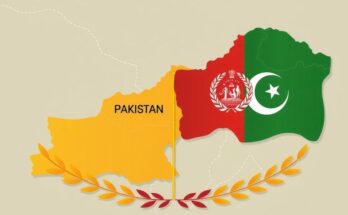Morgan Ortagus, US Deputy Special Envoy, advocates for a peace agreement between Lebanon and Israel through diplomatic negotiations. The US aims to address prisoner releases, occupied sites, and border demarcation. Concerns arise regarding constitutional violations and the historical consequences of normalization.
In a recent development, Morgan Ortagus, the Deputy Presidential Special Envoy to the Middle East, stated that the United States envisions a peace agreement between Lebanon and Israel as the ultimate outcome of current events. During an interview with the Lebanese Al-Jadeed TV channel, she emphasized the importance of initiating diplomatic negotiations through three working groups to address critical issues.
These negotiations aim to tackle key concerns, including the release of Lebanese prisoners, the fate of sites occupied by Israel, and the demarcation of the land border. Ortagus clarified that these issues do not necessitate extensive diplomatic efforts as they can be overseen by the Supervisory Committee for Resolution 1701. She notably pointed out that there would be no grounds for negotiations regarding Lebanese prisoners, asserting that Lebanon has no Israeli prisoners in their control.
Furthermore, Steve Witkoff, former Special Envoy for the Trump administration, indicated that the United States is keen to initiate peace negotiations with both Lebanon and Syria. He expressed optimism about the potential inclusion of Riyadh in the Abraham Accords and highlighted the opportunity for political changes in Lebanon as a result of regional shifts.
In light of Lebanon’s presidential elections and ongoing US-led actions against the country, American embassy personnel have questioned various political candidates regarding their stances on normalization with Israel and the issue of Hezbollah’s weaponry. US Ambassador Lisa Johnson has urged Lebanese leaders to prepare for a comprehensive resolution with Israel, continuously stressing Hezbollah’s diminished political and military capacity.
The United States appears confident that few Lebanese officials would oppose its directives, allowing Washington to pursue its agenda in the region unabated. However, the American approach has limited the effectiveness of the UN committee monitoring Israeli violations of Lebanese sovereignty, as these violations are frequently justified through alleged actions by Hezbollah.
Lebanon’s muted response has facilitated the swift establishment of diplomatic working groups, which may conflict with the Lebanese constitution that prohibits direct interactions with Israeli representatives. The current Lebanese leadership is urged to consider historical precedents, such as the normalization consequences faced by Egypt, Jordan, and the Palestinian Authority, as well as the ongoing situation in Syria.
The United States, under the guidance of officials like Morgan Ortagus and Steve Witkoff, is pushing for normalization between Lebanon and Israel. This initiative involves initiating diplomatic negotiations to resolve key issues, despite the potential constitutional violations in Lebanon. The implications of such normalization are profound, drawing caution from historical outcomes in the region. Lebanese leaders are urged to heed these warnings to avoid replicating the negative consequences faced by their neighbors.
Original Source: www.tehrantimes.com




